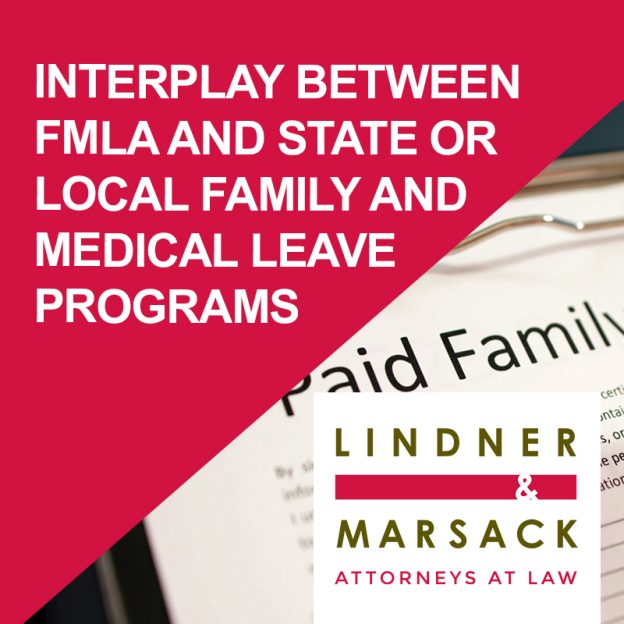By: Samantha J. Wood
February 4, 2025
On January 14, 2025, the Department of Labor (DOL) Wage and Hour Division (WHD) issued an opinion letter stating that employers are not permitted to require employees to use accrued employer-provided paid leave benefits during a designated Family and Medical Leave Act (FMLA) leave when the employee is also receiving benefits from a state or local family and medical leave program.
In the last few years, many states and localities have established paid family and medical leave programs that provide partial income replacement for employees on leave for covered family and/or medical-related absences. When the leave is also covered by the FMLA, these programs often provide that FMLA leave will run concurrently with leave under the program. The DOL’s Opinion Letter addresses how an employee’s receipt of such state or local benefits affects the substitution of other employer-provided paid time off benefits (PTO) during the FMLA leave.
Under the federal FMLA’s substitution regulation, an employee may choose, or an employer may require the employee, to substitute accrued PTO for any part of an unpaid FMLA leave. However, when an employee receives compensation such as short-term disability pay or workers’ compensation benefits during the leave, the DOL has consistently taken the position that the substitution regulation does not apply, and that neither the employer nor the employee may unilaterally require or elect substitution of PTO because the leave is not unpaid. This is true even if the employee only receives partial pay during the leave. In situations where an employee receives partial pay, the employee may only use accrued, employer-provided PTO to obtain 100% of his or her pay when the employer and employee both agree to such arrangement.
The DOL’s most recent Opinion Letter confirms that when an employee is receiving benefits under a state or local family medical leave program, and his or her leave is also designated as FMLA, the substitution regulation does not apply, and the employer and employee must mutually agree to the employee’s use of accrued PTO in order for the employee to receive 100% of his/her pay.
In light of the DOL’s clarification, employers operating in states or localities with paid family and medical leave programs (i.e., California, Colorado, Connecticut, Delaware, Maine, Massachusetts, Maryland, Minnesota, New Jersey, New York, Oregon, Rhode Island, Washington, and Washington D.C.) should review their FMLA policies to ensure compliance.
If you have questions about this material, please contact Samantha J. Wood by email at swood@lindner-marsack.com, or any other attorney you have been working with here at Lindner & Marsack, S.C.

